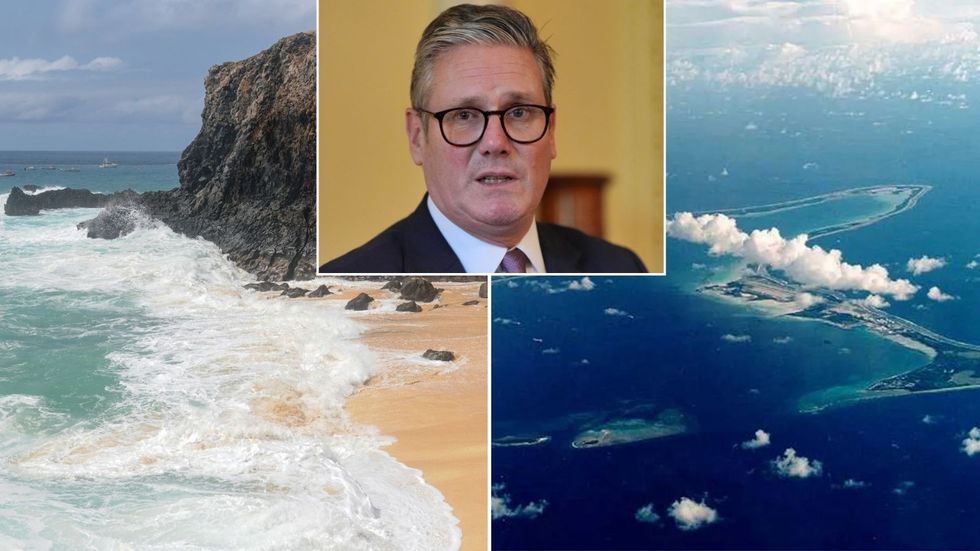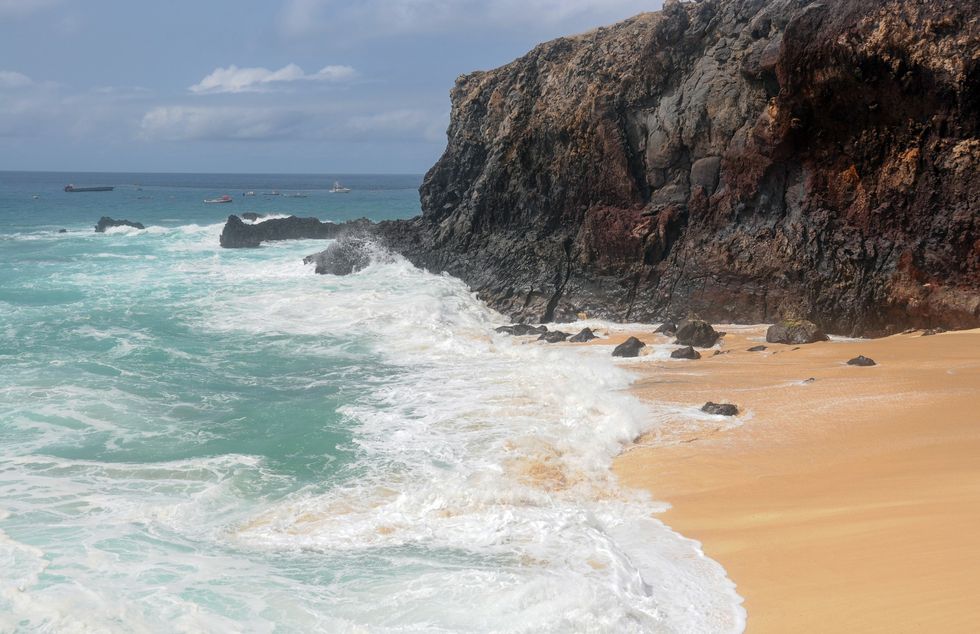Georgina Cutler
Guest Reporter

Sir Keir Starmer has agreed to a controversial deal to deport migrants arriving at the Chagos Islands to St Helena - despite giving up its sovereignty to Mauritius.
The Labour leader's decision bears striking similarities to the Rwanda deportation plan, which he previously denounced as "completely wrong" and "immoral".

Under the new arrangement, asylum seekers reaching the British-owned archipelago on small boats will be sent to St Helena, a remote UK territory over 5,000 miles away in the Pacific Ocean.
This move comes just weeks after Starmer provoked anger by agreeing to cede the Chagos Islands to Mauritius.
The deal has sparked fresh controversy, with critics questioning Labour's apparent U-turn on migration policies and raising concerns about the impact on St Helena's small community of less than 4,500 residents.
The deal allocates £6.65 million in Treasury funding to St Helena, ostensibly to address its healthcare backlog, The Telegraph reports.
Migrants will undergo security screening before deportation, with arrivals potentially continuing for up to 18 months or until the Mauritius agreement is finalised.
The agreement has drawn criticism from various quarters.
Yuan Yi Zhu, assistant professor of International Relations and International Law, questioned the logic: "Let me get this right.
LATEST DEVELOPMENTS:
- Spanish mayor warns hard border with Gibraltar will be 'disaster' as he begs Madrid for post-Brexit deal
- Argentina launches urgent investigation after being left furious over Falkland Islands map
- 'We want to stay British' plead Chagossians: 'Worse than the original expulsion'
"According to Mauritius sovereignty over the Chagos already belongs to Mauritius; but they are happy to offload any asylum seekers arriving in what they say is Mauritian territory to the British territory of St Helena?"
The impact on St Helena's small community has raised significant concerns. Andrew Turner, a St Helena councillor, expressed apprehension about the deal's effects on the island's close-knit society.
"We are a very small island. There are less than 4,500 people who are resident on St Helena, so any influx to the island would have an impact," Turner said.
He highlighted the intimate nature of the community.
"This is the kind of place where you know pretty much anyone you pass on the street on a first-name basis. The cultural shock alone would have a big impact," he added.

Notably, islanders claim they were not consulted about the agreement before its low-key announcement by chief minister Julie Thomas on Wednesday.
The Foreign Office had made no public statement about the deal.
Friends of the British Overseas Territories, a campaign group, criticised the deal, saying it showed a "lack of understanding" of St Helena's challenges by the British government.
"Saint Helena is a small island with public services that already face a number of pressures," a spokesman said.
"The last thing it needs is an undetermined number of illegal migrants being homed there for an unspecified length of time."
The group accused the UK Government of using funding as leverage to impose the deal on St Helena.
"The local government is understandably eager for extra funding, and it's shameful that the UK Government is using funding as a tool to foist this deal upon them," the spokesman added.
These concerns highlight the potential strain on the island's limited resources and infrastructure.
A Foreign Office spokesman defended the deal, telling The Telegraph that it was a response to a "deeply troubling situation" inherited from the previous government.
"Ministers have worked hard to find solutions and contingency plans which protect the integrity of British territorial borders and migrant welfare," the spokesman said.
The official said the arrangement would only apply to future migrants arriving on Diego Garcia.
Find Out More...